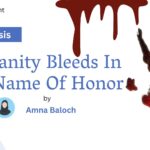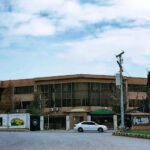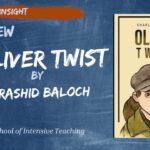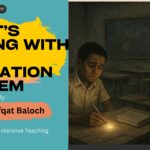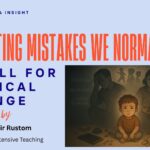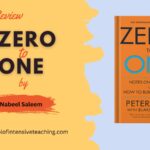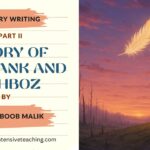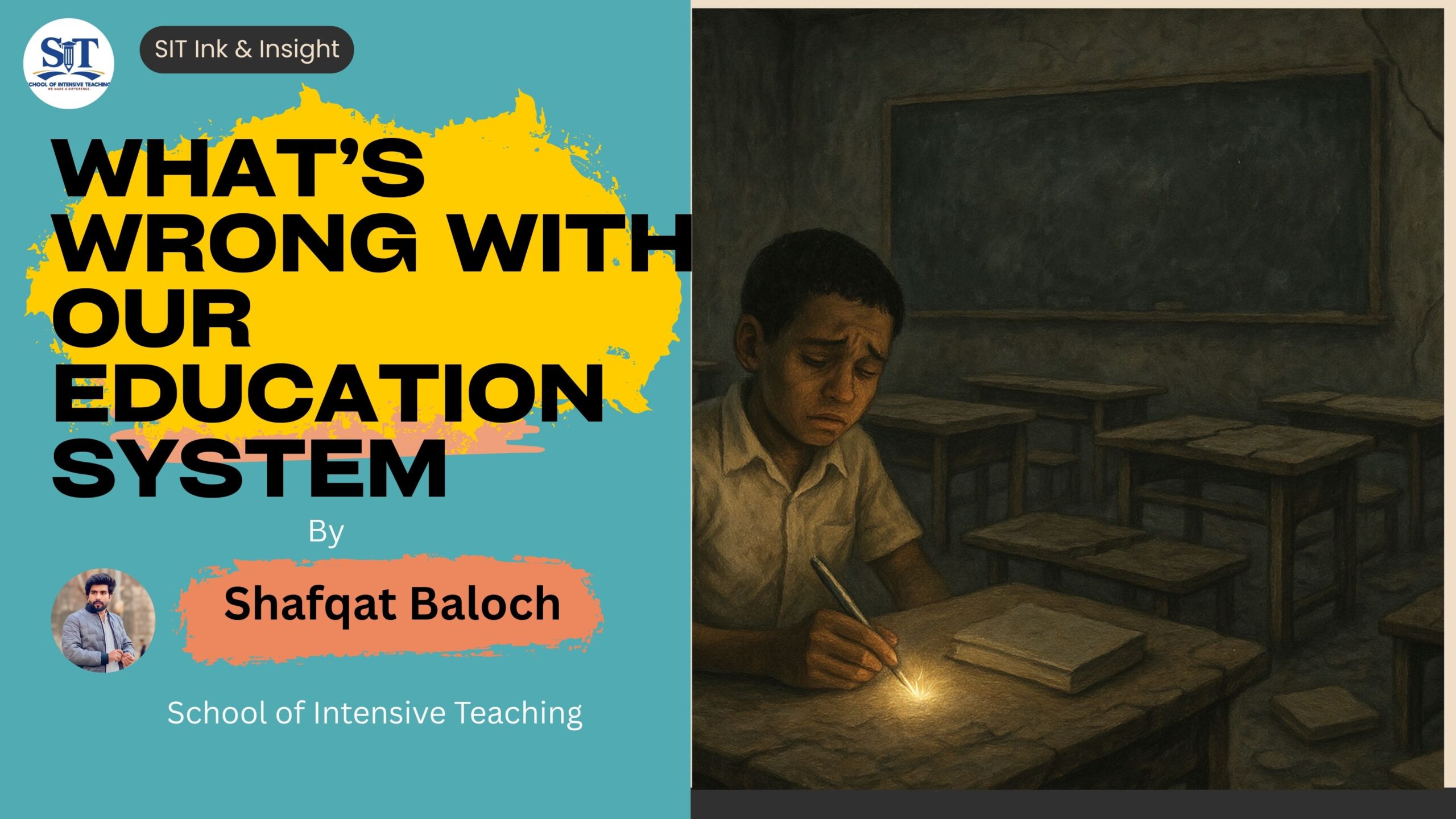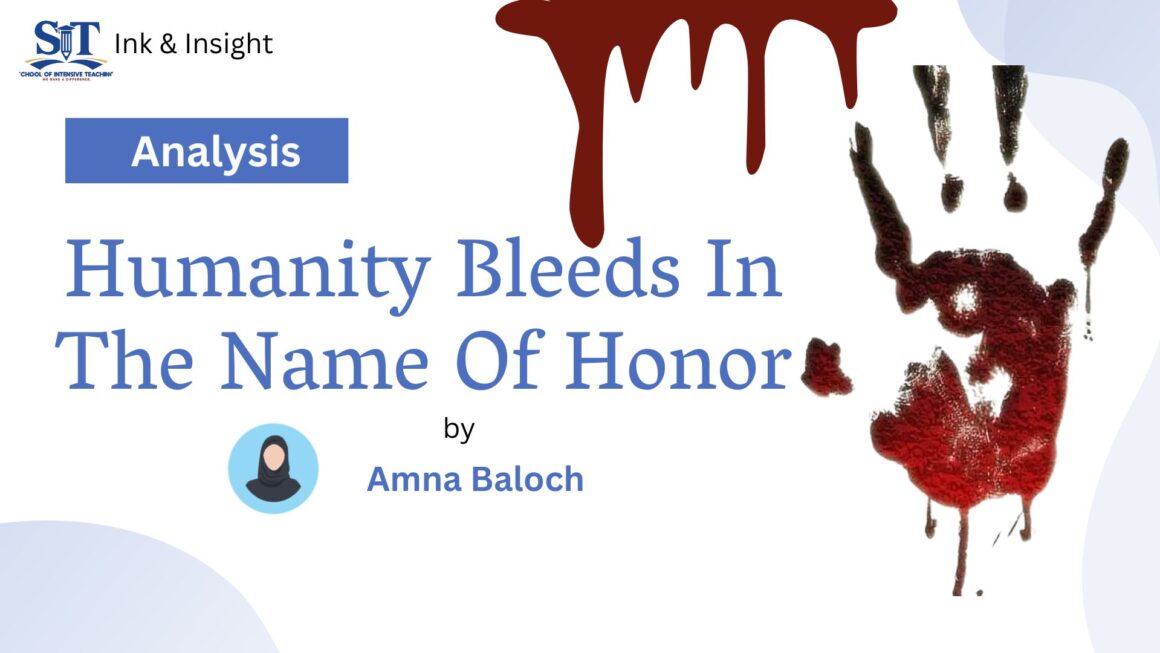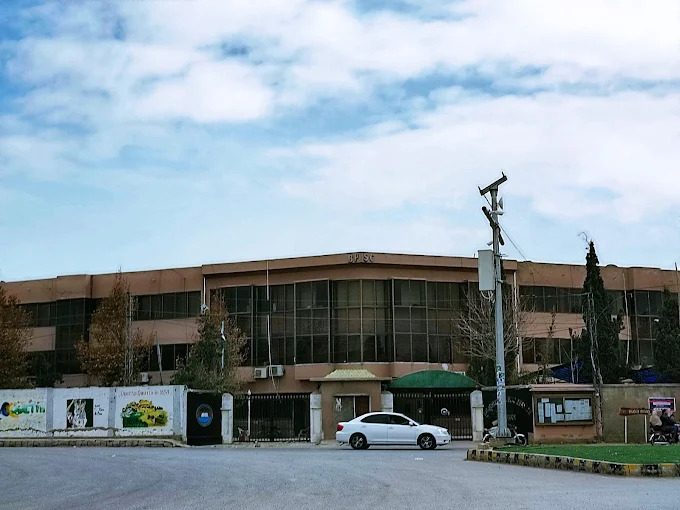The term intellect refers to the unique and universal human capacity for reasoning. In a broader sense, intellect encompasses the way someone thinks, perceives, and envisions life; it guides us on how to live and why we should live. It is considered the pathway for the personal and social betterment of society. Moreover, it contains a roadmap towards happiness. As a student, I find that the most effective means of acquiring information or knowledge is to watch TV, read a book, a magazine, or a newspaper, or be around educated people. However, one usually encounters faded, shaggy, and uncertain views of individuals in the primitive age of learning.
In fact, not only I, but also the entire youth of Balochistan has to go through it. Unfortunately, the large number of public, elite, non-elite, and private institutions has focused primarily on increasing the number of zeros in their balance rather than producing creative, skilled, and competitive pupils. Throughout history, we have seen that every media pundit, politician, and columnist is always busy highlighting a range of problems faced by the government, not only because of their vested interests but also because their conflicting interests have prevented a meaningful debate on the real crisis.
Rome wasn’t built in a day—but we’re not building at all.
Similarly, the shelves of bookstores in any major city are adorned with books on military invasion, wars, extremism, conspiracy theories, and autobiographies of politicians, which are making us parrots rather than improving our intellect. I would call this the tip of the iceberg or an intellectual crisis.
Unfortunately, this is lacking in our province. Anywhere in the province, you will find useless discussions; you will not find any debate-based discussions on the questions of how to fix the fragmented education system, which curriculum would be better to promote critical thinking in children, how to take care of the elderly population in society, or how to foster tolerance in our society. We are trying to use our intellect beyond its gam bit.
The absence of intellectualism in our educational system is making the youth dull. Today, people consider educational institutions as a field of business; on the other hand, they lack innovative staff. Schools are often seen as a field where children become familiar with education. Still, our schools are making students incapable and weak. Furthermore, our colleges and universities are far behind the rest of the world in transforming life. In our educational institutions, it is rare to find a teacher who makes an effort to equip students with creative skills. In addition, the activities conducted by the instructors are often a waste of time rather than being productive.
As far as the family is concerned, it has an equal share in the intellectual crisis. As a student, I spend most of my time at home with my family. When a child is seen holding a pen, circle of relatives participants consider him a hardworking pupil. That’s how they set their minds on their youngsters. Unfortunately, having a pen or pocket book does now not necessarily imply that a student is answerable for their studies.
Intellectual thinking empowers a person to confront problems, challenges, and obstacles with self belief. Intellectual capability imagines and creates pathways of existence, and these pathways result in prosperity and betterment, no matter situations. Academicians, researchers, and experts respond to the needs of societies. Conversely, this type of market of ideas and knowledge is absent here in Balochistan. Libraries and reading culture are also missing in government offices, corporate sectors, and educational institutions. It is said rightly that Rome was not built in a day. It takes years for countries to develop it. The intellectual community creates the market of ideas for development. Yet, our societies are far from such realities in the twenty-first century!
In the short run, we need to diversify the scope of our discussions and dialogues by politics, civil, military, and corporate establishments. A counter-try needs to realise that economy and competitiveness lie in the creation and application of new knowledge. We need to promote a culture of libraries and book-reading in all segments of society. In the long run, we also need to equip our future generations with three Cs: creative thinking, critical thinking, and collaborative learning for demanding accountability not only from politicians but also from leaders.
About the author:
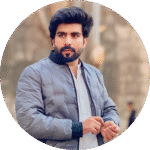
Shafqat Baloch
SIT Hub AlumnusShafqat Baloch is a SIT Hub alumnus and a former member staff. After completing his F.Sc, he aims to pursue Economics at GCU Lahore.

